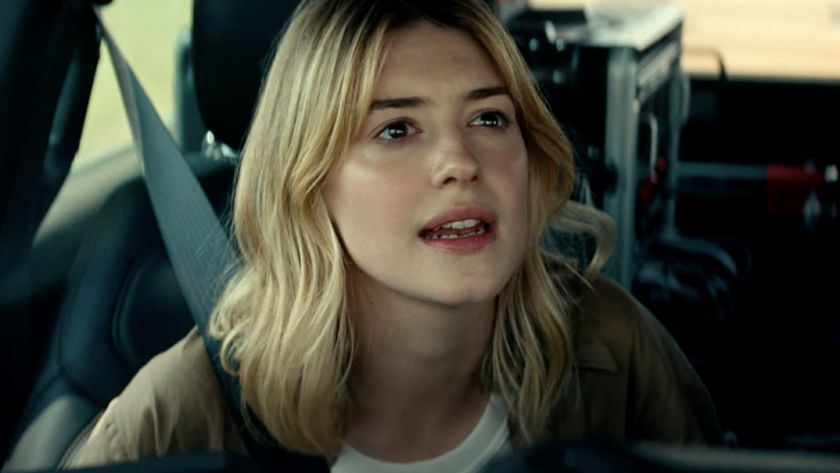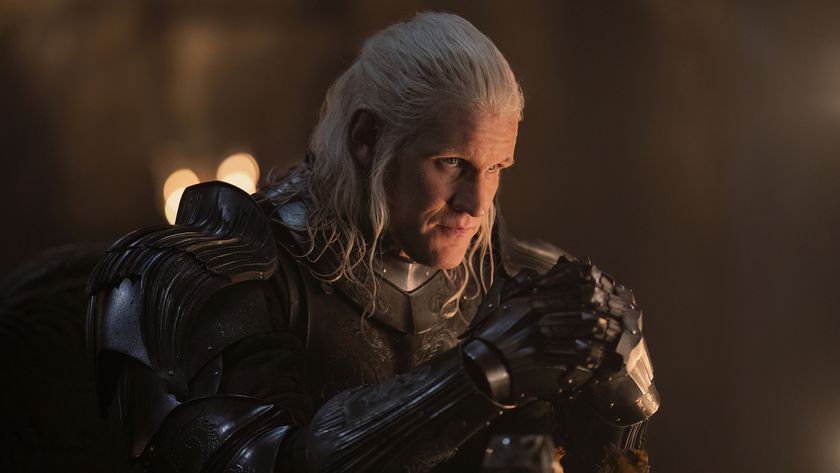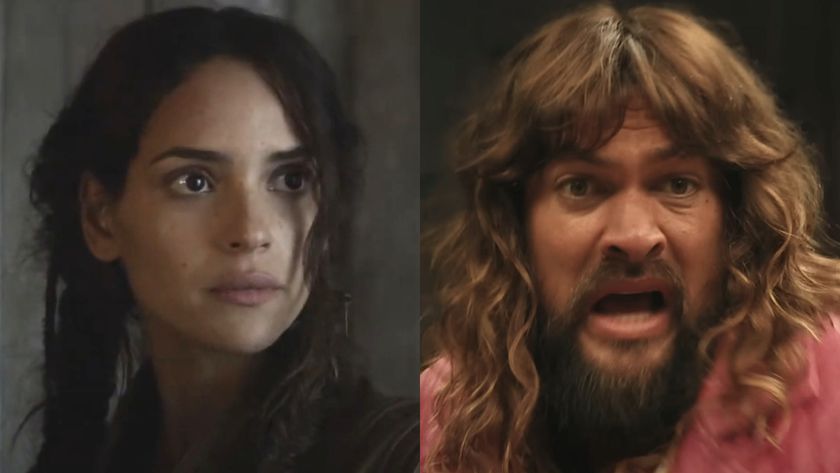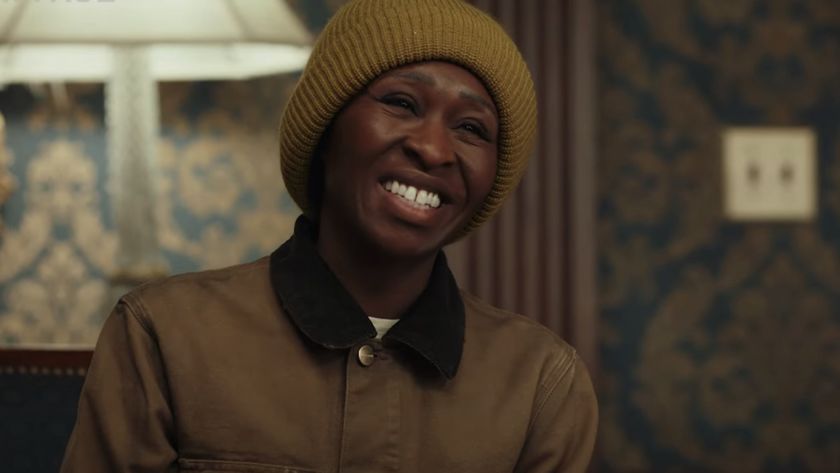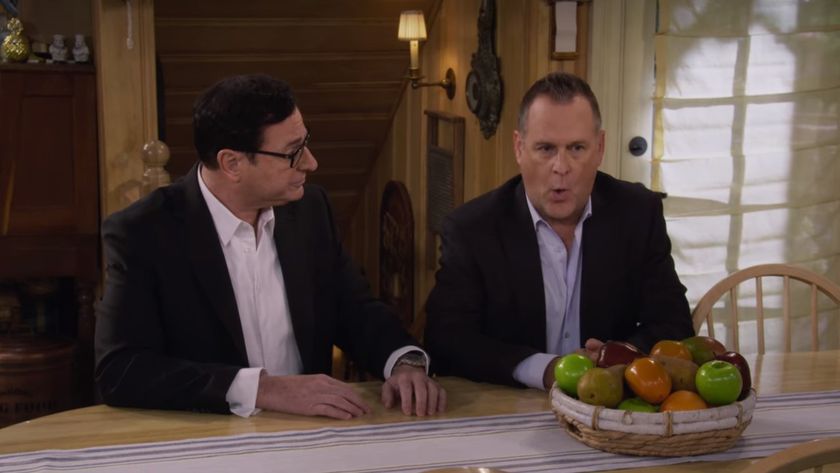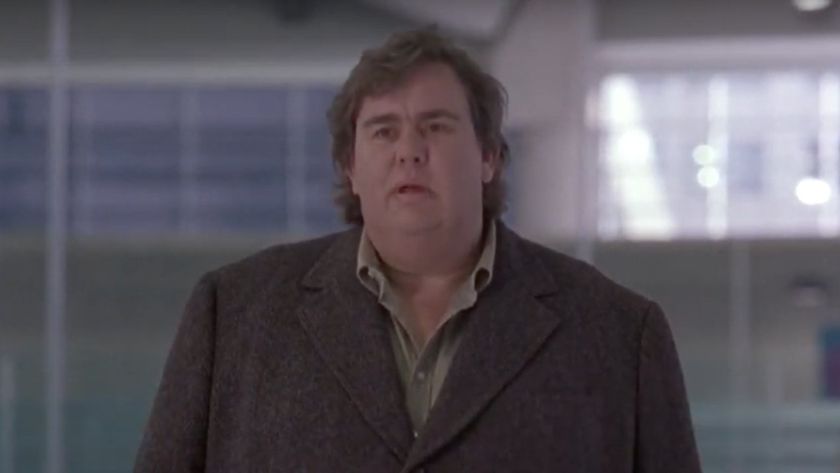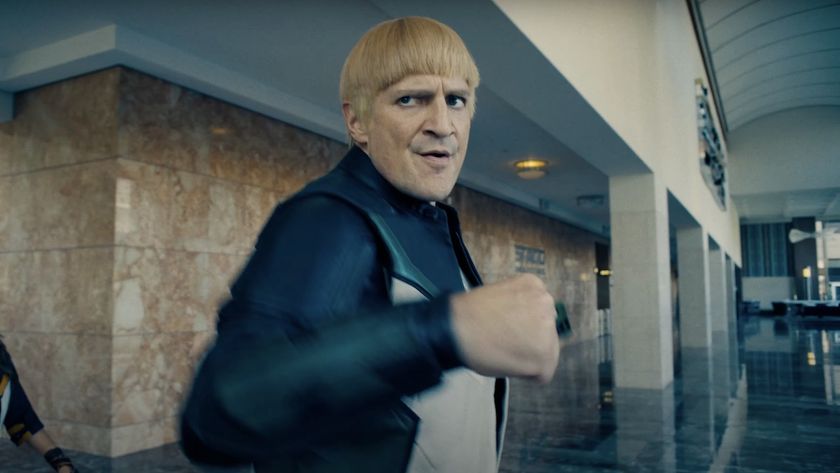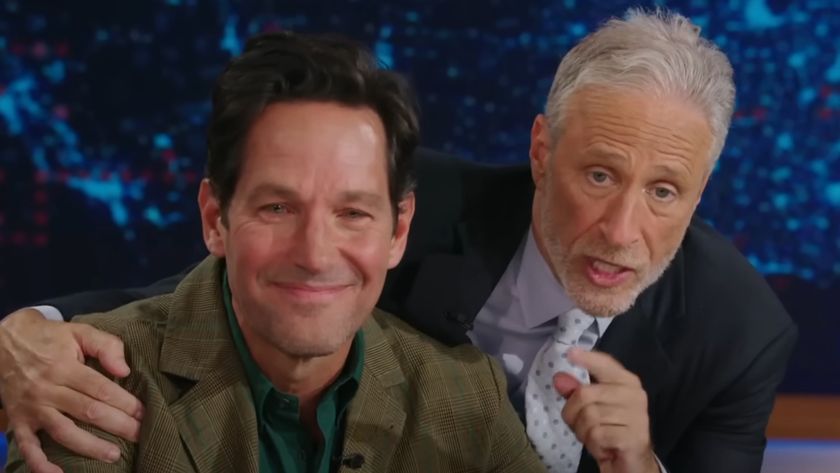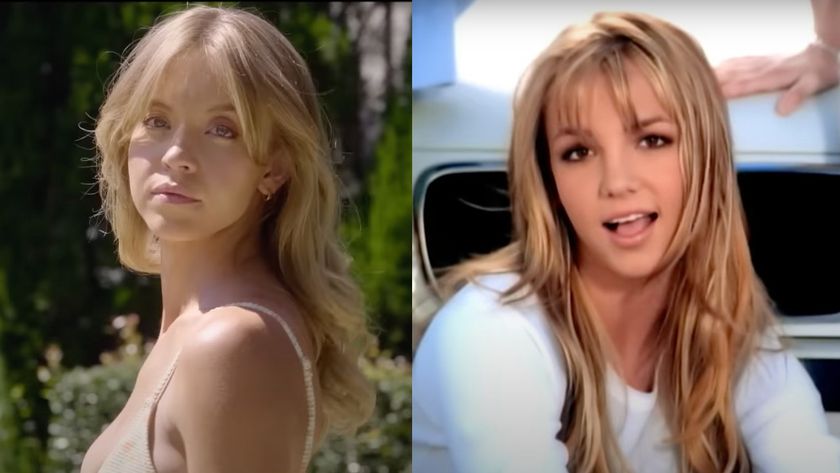Avengers Director Joss Whedon On Doing Right By The Hulk
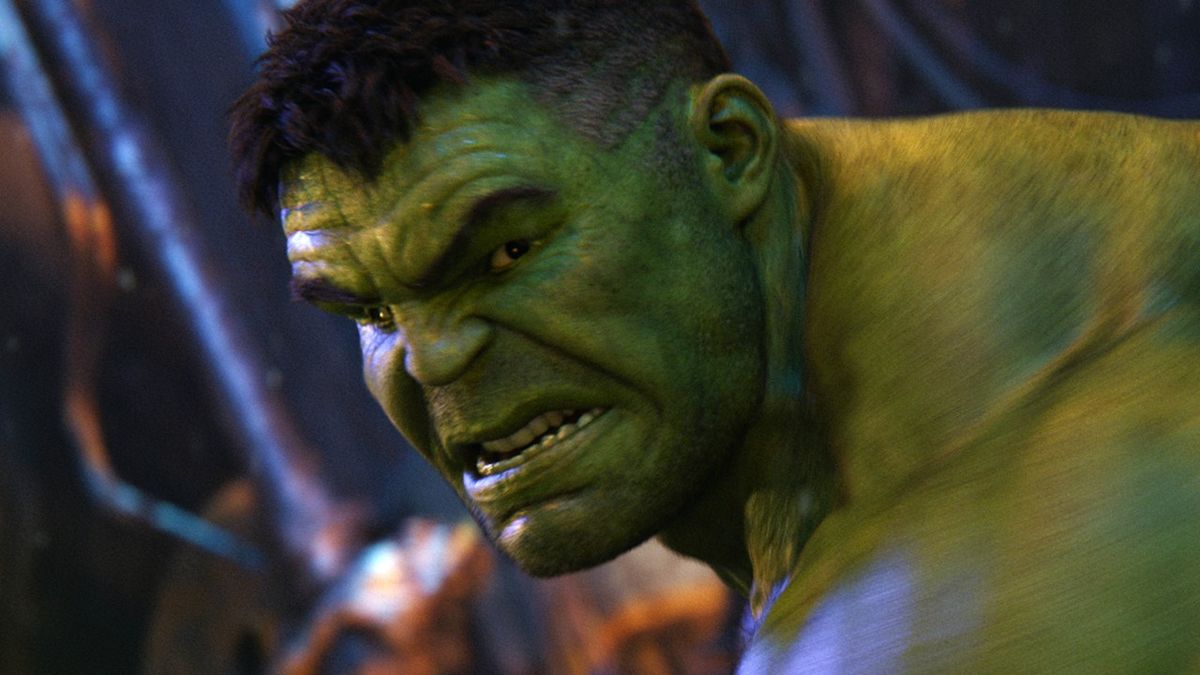
The Avengers isn’t out in the United States until midnight tonight, but all this week people have been going nuts for The Hulk. In fact, on Monday there were even whispers about a new Hulk solo movie by 2015 and earlier today our own Katey Rich and Sean O’Connell debated about whether or not Mark Ruffalo gave the best performance in the movie. The reason why the sudden love is so surprising is because both Ang Lee’s Hulk and Louis Letterier’s The Incredible Hulk failed to really connect with audiences or critics in a real way. So what is it about this version that people love so much?
Having loved Ruffalo’s take on the Hulk as much as everyone, when I had the chance to sit down one-on-one with writer/director Joss Whedon a few weeks ago it was the first thing I had to ask him about. Check out my interview with Whedon below, in which he talks about not only what he did right with the Hulk, but the origins of the script as a Captain America Story, deleted scenes, and crafting the proper tone.
This movie works as an ensemble piece and is really well balanced, but who is the hardest character to write for?
Hulk. And not in terms of the voice, necessarily, so much as the structure. What’s going to make this guy Hulk out? When is that good? When is that bad? How do you toe the line with villain, being a monster and hero? And make it all play in the same movie. It’s a thing that has plagued the Hulk movies, and even getting the animators to understand what I was going for…well I had to go and talk to them [laughs]. Which was fascinating to me, because afterwards they were like, “This is great! Nobody ever comes and tells us about stuff!” And I’m like, “What? Are you kidding? You guys are creating one of the most important characters!” And they so got it after we talked a while and I thought they did such a beautiful job and Mark did such a beautiful job. So I feel very proprietary about how that went and I’m really proud of it because it really was tough.
I personally thought the Hulk was the best part of the movie and the real standout. And you kind of touched on this, but in contrast, what do you think it was about the previous Hulk movies that got it wrong?
Well, for me, again, you’re dealing with this monster and they treat them like superhero movies, but the problem is, when they do that they’re doing that with a hero who thinks he’s in a monster movie. So what you get is a man whose only obsession is to stop you from paying to see the thing you paid to see. And that’s a real problem! And then you put him in a possibly convenient situations with the worst people in the world every time he turns into the Hulk, and one of the things that was exciting for me was to have him transforming in a dark room next to the Black Widow, because that’s not okay! He’s actually mad at her! [laughs] And you want to say, yeah, there’s a reason why he doesn’t want to let this out and you want to feel it because you don’t want her to be dead.
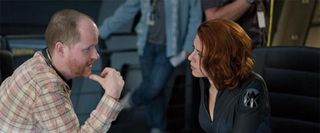
To talk about the film on a bigger scale, I read, and you can correct me if I’m wrong, that the original version of the movie was going to be a more Captain America story. Is that correct?
CINEMABLEND NEWSLETTER
Your Daily Blend of Entertainment News
I started with him and Iron Man and their differences, and Cap was kind of my “in” because Iron Man is a guy who knows what’s going on and he’s above us and he’s too cool and his girlfriend is Gwyneth Paltrow [laughs]. And Cap is a guy, he’s looking at the world for the first time, so he’s Luke and Tony is Han. That’s kind of the vibe. Ultimately there was too much and I found that I had sort of fallen into writing Iron Man 3, is basically the thing. So yes these guys will have these points of view, but I need to back off from making that the center of the film and really deal with all of the team as a whole. We did shoot a lot of stuff with Cap, feeling like he’s not in the world, and honestly, the moment I saw him at that punching bag it was, “Oh, yeah. That says it all.” He’s in the gym alone at night beating the shit out of a punching bag!
Multiple!
And I really don’t need to say a lot else!
On that kind of note, were there any scenes that you shot that you ended up having to cut due to story and pacing, but really wanted to keep in?
Yeah, the first cut was quite long. And you’ll see in the DVD extras there was times when I really wanted to spend time with some of the ancillary characters, who are more human to sort of give context to everything that’s happening. But, ultimately, fans were like, “Yeah, what we’d like to see is THE AVENGERS, SO WHY DON’T YOU JUST SHOW THAT INSTEAD?” [laughs] And so there’s a lot of good work on the floor, but there isn’t anything on the floor that I feel we gutted the movie.
So this is the director’s cut.
Yes. You know what, and someday this may bite me and I may not be able to accomplish it, but it is always my intent to put the director’s cut in theaters. I don’t like to have different versions of a story, it kind of tweaks me. I like to know this is the story, this is it.
This is also a project that operates on a massive scale, not just because of its content but because it also happens to be a sequel to five different movies. How did that affect your approach in terms of continuity? Like, for example, I know you did some work on the Captain America: The First Avenger script to make sure that it flowed into The Avengers better.
Mostly I did work on Captain America just to do a pass at some of the dialogue and character stuff, which was a joy, because I loved the structure of that movie and being able to write those characters was super exciting. And also, yeah, I did write the tags so that it could tee us off. There was a version of it that ended on the helicarrier. Eventually I was like, “Can you please not do that?” And they were like, “Really? Joe Johnston didn’t want to do that either!” Then don’t put it in!
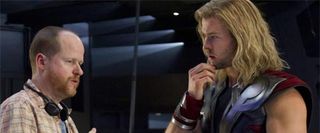
Can you also talk a bit about crafting the tone for this movie? With the exception of The Incredible Hulk, which takes itself a bit more seriously than the others, the Marvel movies have tended to be a bit more lighthearted and fun, but this movie actually has a lot of comedy in it. And that also runs contrast to the trend in Hollywood started by The Dark Knight to make everything darker. How do you play with that line and prevent yourself from jumping into spoof territory?
You have to make sure that the humor comes from character and even when you’re making fun of the characters, it’s themselves who are sort of hoisting themselves by their own petard. It’s not you pointing at them and saying, “Stupid!” And Chris Evans would get nervous about some of the Cap things and I was like, “Dude, this is going to make them love you because it makes you so out of time.”
What stuff specifically?
The “I understood that reference.” “Does that make me sound like an idiot?” “No! It’s going to make people remember how hard this is for you and how sweet you are.” He’s so funny, but he wants to maintain the integrity, which I think is very important. Tonally, for me everything comes from the drama, the pain, the narrative thrust, the connection. Those things, the journey from isolation to unity to community. That’s where I start and then everything else falls into place – humor action, all that stuff that comes is based on what is the most dramatic version of this. So as long as you have that as a base you don’t have to be relentlessly dramatic. And I do think that, ultimately, The Dark Knight is The Dark Knight. It’s the story of this one tortured guy. The Avengers is never going to be that. These people have their own various tortures, but it’s an odd conglomeration at best and you want to celebrate that. And you also want to celebrate the idea that when somebody can jump up 20 stories and smash an alien into the wall, he might just be having the most fun ever!
I know I have to wrap up, but I did want to ask: you had Cabin in the Woods come out earlier this year, The Avengers now, Much Ado About Nothing in the works. Is television still on your radar?
It will be. I’m not developing anything right now because I’m super tired, but I love TV. It’s an extremely thrilling way to work. It’s not thrilling on a guy’s schedule, but I absolutely want to go back.
Do you miss the pressure of doing a weekly television show?
I like some pressure, but right now I think I’ve had enough. I’m full. Please, may I be excused.

Eric Eisenberg is the Assistant Managing Editor at CinemaBlend. After graduating Boston University and earning a bachelor’s degree in journalism, he took a part-time job as a staff writer for CinemaBlend, and after six months was offered the opportunity to move to Los Angeles and take on a newly created West Coast Editor position. Over a decade later, he's continuing to advance his interests and expertise. In addition to conducting filmmaker interviews and contributing to the news and feature content of the site, Eric also oversees the Movie Reviews section, writes the the weekend box office report (published Sundays), and is the site's resident Stephen King expert. He has two King-related columns.
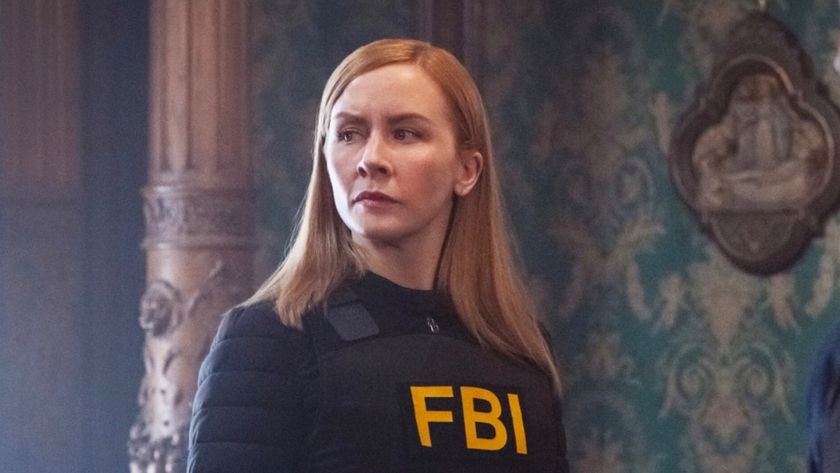
After FBI: International's Eva-Jane Willis Said Smitty Was 'Genuinely Ready To Leave' Earlier In Season 4, The Next Episode Preview Worries Me
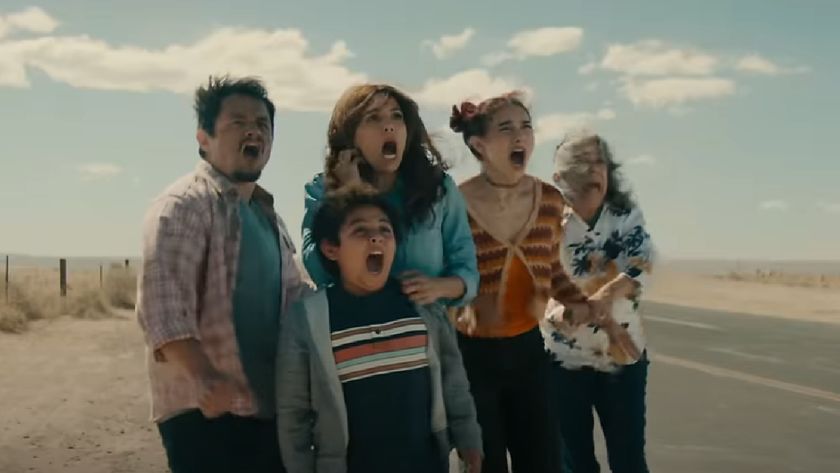
Alexander And The Terrible, Horrible, No Good, Very Bad Road Trip Felt Like Coming Home To Me, And The Two Leads Told Me Why It Felt So Authentic To Latino Culture
